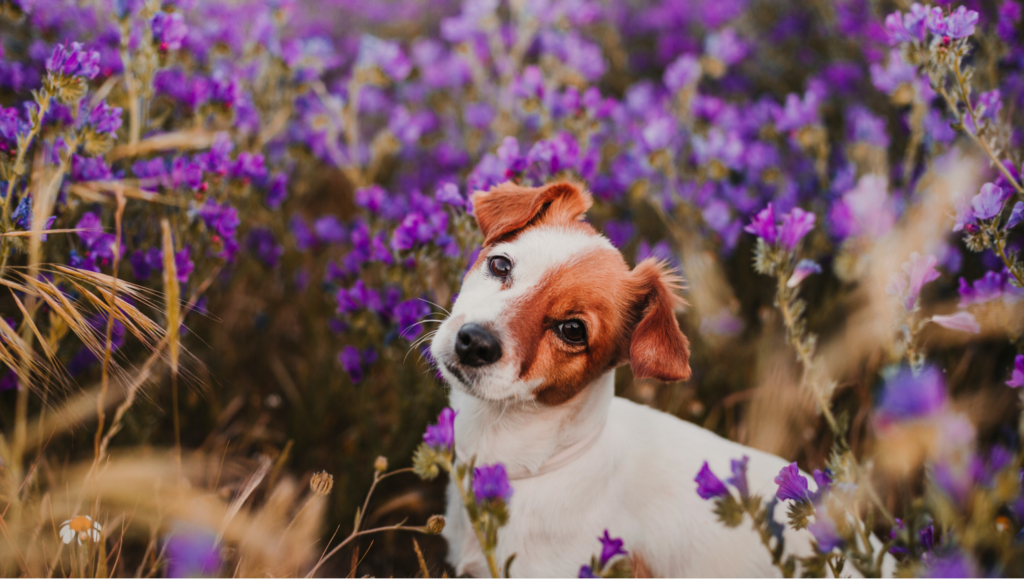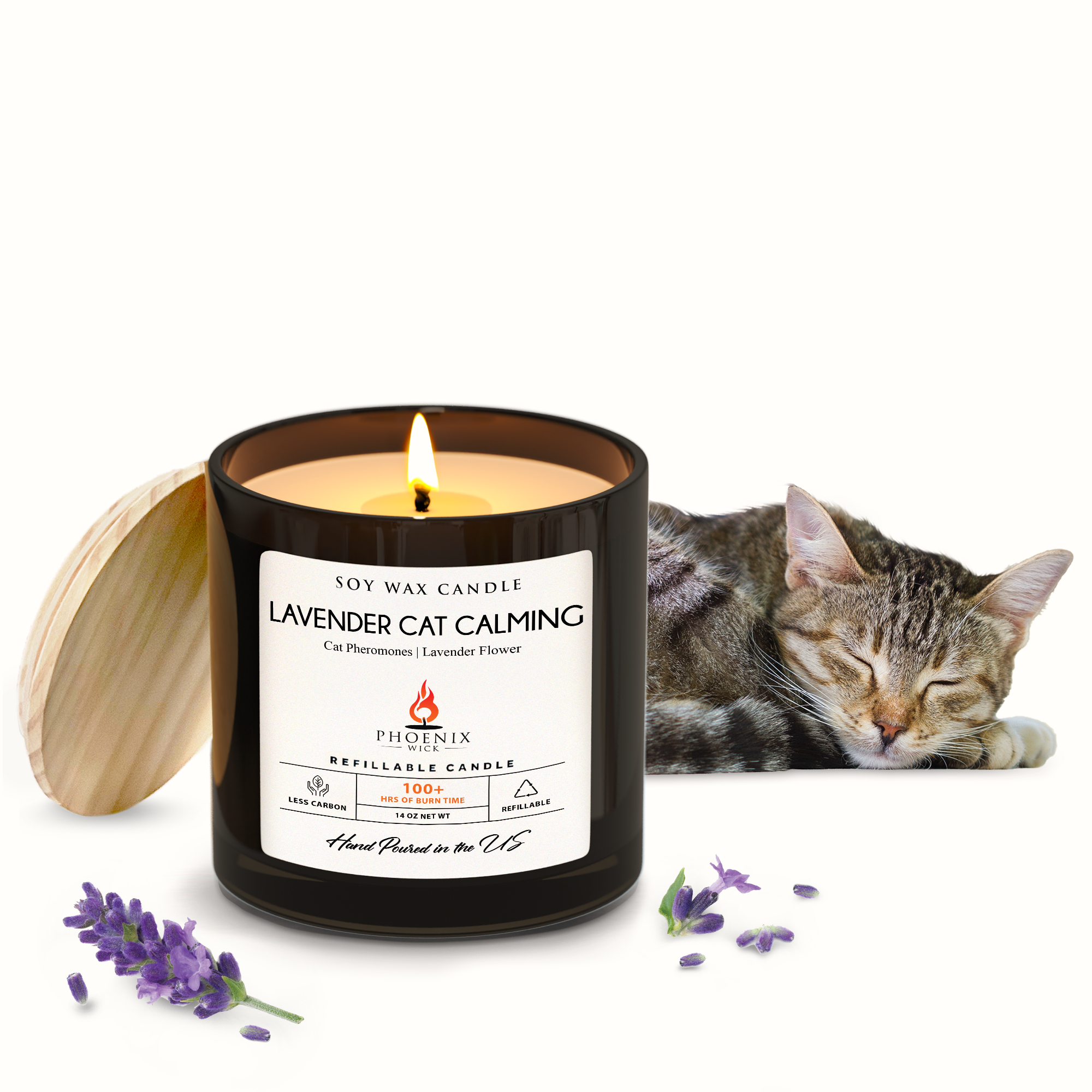Key Takeaways
- Lavender essential oils are highly concentrated and can be toxic to cats, causing symptoms like lethargy, drooling, and loss of appetite.
- Dogs are generally less sensitive to lavender, but ingestion of lavender essential oils can still pose health risks.
- Lavender Epsom salt baths can be beneficial for dogs, but it’s crucial to ensure the lavender is properly diluted.
- Burning lavender candles around cats is not recommended due to the risk of respiratory issues and skin irritation.
- Always choose pet-safe alternatives like chamomile or rosemary for aromatherapy and scented products in your home.
Is Lavender Safe for Pets? Understanding the Risks and Precautions
Lavender is widely known for its calming and soothing properties, making it a popular choice for aromatherapy and relaxation. However, when it comes to our furry friends, the safety of lavender is a topic that requires careful consideration. Let’s delve into whether lavender is safe for pets and how you can ensure their well-being.
“Is Lavender Essential Oil Safe For Your …” from angelaardolino.com and used with no modifications.
Lavender and Pets: An Overview
Lavender can be found in many forms, from essential oils to candles and even potpourri. While it offers numerous benefits for humans, its impact on pets can be quite different. Cats and dogs metabolize certain substances differently than humans, which can lead to adverse reactions.
For cats, lavender can be particularly problematic. The American Society for the Prevention of Cruelty to Animals (ASPCA) has listed lavender as toxic to cats. The presence of linalool and linalyl acetate in lavender can cause gastrointestinal upset, respiratory issues, and skin irritation in cats.
Risks of Lavender Exposure for Cats
Cats are highly sensitive to essential oils, including lavender. When a cat is exposed to lavender, it can exhibit several symptoms indicating toxicity. These symptoms can vary depending on whether the lavender was ingested or came into contact with the cat’s skin. For more information on which oils are safe, check out pet-safe essential oils.
- Lethargy: Cats may become unusually tired or inactive.
- Drooling or Nausea: Excessive drooling and signs of nausea are common indicators.
- Loss of Appetite: A sudden disinterest in food can signal a problem.
It’s important to note that even lavender-scented candles can pose risks. The chemical compounds in lavender can cause respiratory issues and irritation of the eyes, skin, and gastrointestinal system in cats. Therefore, it’s best to avoid using lavender candles or any lavender-scented products around your feline friends.
Lavender and Dogs: Potential Hazards
Dogs are generally less sensitive to lavender compared to cats, but that doesn’t mean they are entirely safe from its effects. Ingesting lavender essential oils can still pose health risks to dogs. The concentrated nature of essential oils can lead to symptoms such as vomiting, diarrhea, and even central nervous system depression.
Therefore, while dogs might tolerate lavender better than cats, it’s crucial to use lavender products with caution. Always ensure that any lavender product used around your dog is appropriately diluted and never leave essential oils or lavender-scented items within their reach.
Lavender Epsom Salt Baths for Dogs
Lavender Epsom salt baths can be a soothing and therapeutic treatment for dogs, particularly for those with sore muscles or skin irritations. Epsom salt baths have long been used for their healing properties, and adding lavender can enhance the calming effect.
Benefits of Epsom Salt Baths
Epsom salt baths offer several benefits for dogs:
- Relieves Muscle Soreness: The magnesium in Epsom salt helps relax muscles and reduce inflammation.
- Soothes Skin Irritations: Epsom salt can help alleviate itching and irritation caused by allergies or skin conditions.
- Calming Effect: The addition of lavender can provide a calming and soothing experience for your dog.
However, it’s essential to ensure that the lavender is properly diluted to avoid any potential adverse reactions. Most importantly, always monitor your dog during and after the bath to ensure they do not ingest the bathwater. For more information on safe plants for pets, check out this article on rosemary safety for dogs and cats.
“Cat Calming – 14oz Filled Candle …” from phoenixwick.com and used with no modifications.
Using Lavender and Scented Candles Around Cats
Many pet owners love the calming ambiance that lavender and scented candles bring to their homes. However, it’s crucial to be aware of the potential risks these products pose to your feline companions. Cats are particularly sensitive to essential oils and scented products, and what might be soothing for us can be harmful to them.
Dangers of Lavender Candles for Cats
Lavender candles contain compounds like linalool and linalyl acetate, which can cause respiratory issues and skin irritation in cats. When burned, these compounds are released into the air, posing a risk to your cat’s health. Cats have a more sensitive respiratory system compared to humans, and inhaling these compounds can lead to coughing, sneezing, and even difficulty breathing. For a safer alternative, consider using pet-safe plants like Angelonia that are not toxic to cats.
Safeguards for Using Scented Candles at Home
If you still wish to use scented candles in your home, there are several precautions you can take to minimize the risks to your cats:
- Choose Pet-Safe Scents: Opt for candles made with essential oils that are safe for pets, such as chamomile or rosemary.
- Proper Ventilation: Ensure that the room is well-ventilated to disperse any potentially harmful compounds.
- Keep Candles Out of Reach: Place candles in areas where your cat cannot access them to prevent accidental ingestion or contact.
- Limit Burning Time: Avoid burning candles for extended periods, as prolonged exposure can increase the risk of respiratory issues.
Alternative Pet-Safe Scents
There are several pet-safe alternatives to lavender that you can use to create a calming atmosphere in your home. These alternatives can provide the same soothing effects without posing a risk to your pets:
- Chamomile: Known for its calming properties, chamomile is safe for both cats and dogs.
- Rosemary: This herb has a pleasant scent and is safe for pets when used in moderation.
- Frankincense: A great option for creating a relaxing environment, frankincense is non-toxic to pets.
Guidelines for Safe Aromatherapy Around Pets
Aromatherapy can be a wonderful way to create a calming environment for both you and your pets. However, it’s essential to follow specific guidelines to ensure the safety of your furry friends.
Choosing Safe Essential Oils
When selecting essential oils for use around pets, it’s crucial to choose ones that are known to be safe. Some essential oils can be toxic to pets, so always do your research before introducing a new oil into your home. Safe options include:
- Lavender (for dogs only): While lavender is safe for dogs in diluted forms, it should be avoided around cats.
- Chamomile: Safe for both cats and dogs, chamomile is a great option for calming aromatherapy.
- Frankincense: Non-toxic to pets and excellent for creating a relaxing atmosphere.
Proper Ventilation and Safe Use
Proper ventilation is key when using essential oils or scented products around pets. Ensure that the room is well-ventilated to prevent the buildup of potentially harmful compounds. Additionally, always dilute essential oils before use, as concentrated forms can be too strong for pets.
When using a diffuser, place it in an area where your pets cannot access it. This prevents accidental spills or ingestion of the essential oils. Monitor your pets for any signs of sensitivity or allergic reactions, such as coughing, sneezing, or skin irritation. If you notice any of these symptoms, discontinue use immediately and consult your veterinarian.
Signs of Sensitivity or Allergic Reactions
- Coughing and Sneezing: This can indicate respiratory irritation.
- Skin Irritation: Redness, itching, or swelling on the skin.
- Vomiting or Diarrhea: Common signs of gastrointestinal distress.
- Lethargy: Unusual tiredness or inactivity.
- Loss of Appetite: A sudden disinterest in food.
If your pet shows any of these signs after exposure to lavender or other scented products, it’s crucial to act quickly. Remove the source of the irritation immediately and ensure your pet has access to fresh air. If symptoms persist or worsen, consult your veterinarian as soon as possible.
For instance, I once encountered a case where a cat named Whiskers started coughing and sneezing after his owner lit a lavender-scented candle. The owner quickly extinguished the candle and opened the windows to ventilate the room. Whiskers’ symptoms improved, but a visit to the vet confirmed that the lavender had caused mild respiratory irritation. This experience underscores the importance of being vigilant and proactive when it comes to your pet’s health.
Frequently Asked Questions (FAQ)
To help you navigate the complexities of using lavender around pets, here are answers to some frequently asked questions.
Are there any lavender products safe for use around pets?
While lavender essential oils are generally not safe for cats, certain lavender products can be used around dogs if properly diluted. Always choose high-quality, medical-grade essential oils and dilute them significantly before use. For instance, a few drops of lavender oil in a large diffuser filled with water can be safe for dogs, but it’s best to avoid direct application or ingestion.
Can I use lavender oil in a diffuser around my pets?
You can use lavender oil in a diffuser around dogs, but it’s not recommended for cats. Ensure the room is well-ventilated and monitor your pets for any signs of sensitivity. For a safer alternative, consider using pet-safe essential oils like chamomile or frankincense. Always start with a small amount and observe how your pets react before increasing the concentration. For more information, check out scents that are harmful to your pets.
What should I do if my pet shows signs of lavender toxicity?
If your pet shows signs of lavender toxicity, such as vomiting, diarrhea, lethargy, or respiratory distress, remove them from the exposure area immediately. Provide fresh air and consult your veterinarian without delay. Your vet may recommend treatments like activated charcoal to prevent further absorption of the toxin or supportive care to alleviate symptoms. For more information on safe plants for pets, you can read about Texas sage and its non-toxicity to pets.
Are there any specific dog breeds more sensitive to lavender?
While all dogs can potentially react to lavender, some breeds with respiratory issues, such as Bulldogs, Pugs, and other brachycephalic breeds, may be more sensitive. These breeds already have compromised respiratory systems, making them more susceptible to irritation from essential oils and scented products. Always exercise extra caution when using any scented products around these breeds.
In conclusion, while lavender offers numerous benefits for humans, its use around pets requires careful consideration and precaution. By understanding the risks and following the guidelines provided, you can create a safe and calming environment for both you and your furry friends. Remember, when in doubt, consult your veterinarian to ensure the well-being of your pets.







